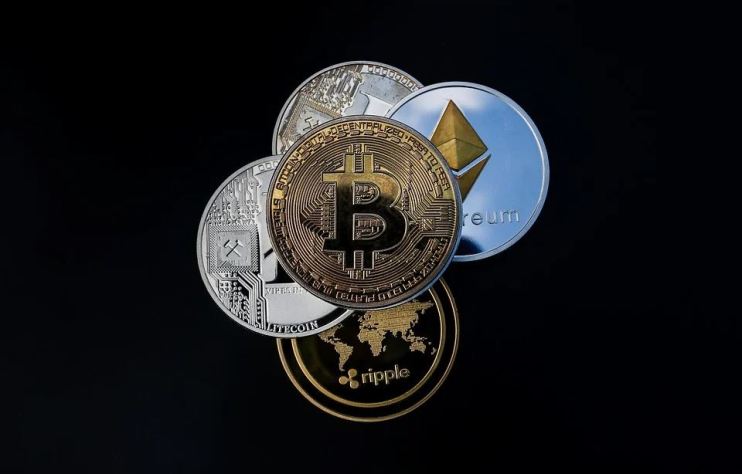Bitcoin sets a new all-time high and Ethereum starts its journey to ETH 2.0

Last week was one of the most exciting weeks in 2020 for the crypto community, with an abundance of bullish news for Bitcoin and the achievement of a huge milestone for the Ethereum Foundation. Bitcoin’s new all-time high is $19,911, and this price was reached at 11:00 UTC on December 1, according to data by CryptoCompare.
An hour later, Ethereum 2.0’s Beacon Chain successfully launched. The Beacon Chain is a Proof-of-Stake (PoS) blockchain, and it signals the first step in the plan to change Ethereum’s consensus mechanism from Proof-of-Work (PoW) to Proof-of-Stake. It runs alongside the original Ethereum PoW chain, making sure that there is no break in the continuity of the chains.
Phase 1, which is expected to launch in 2021, will “address finality and consensus on shard chains”, and it will be “more of a ‘test run’ for shard chains than the release of an immediately-scalable solution.” It is hoped that ETH 2.0 will increase throughput by over 1000x, which will alleviate the high fees associated with Ethereum transactions currently.
Forbes reported last week that the partnership between Visa and Circle Internet Financial (“Circle”), which developed dollar-backed stablecoin USDC Coin (USDC), means that Circle will help Visa card issuers to enable sending/receiving USDC payments.
The report said that “businesses will eventually be able to send international USDC payments to any business supported by Visa, and after those funds are converted to the national currency, spend them anywhere that accepts Visa.”
Once Circle has gone through Visa’s Fast Track program (sometime next year), Visa will create a card that allows any businesses to send/receive USDC to/from other businesses via the card. After the USDC funds are converted to the local currency, businesses can spend the money anywhere that takes Visa.
Michael J. Saylor, Co-Founder, Chairman, and Chief Executive Officer of Nasdaq-listed business intelligence company MicroStrategy Inc. (NASDAQ: MSTR), disclosed that his firm had bought more bitcoins. Back on September 14, Saylor tweeted that MicroStrategy had to date “purchased a total of 38,250 bitcoins at an aggregate purchase price of $425 million, inclusive of fees and expenses.”
Now, Saylor says that MicroStrategy has spent another $50 million of its cash on Bitcoin, buying “approximately 2,574 bitcoins for $50 million in cash in accordance with its Treasury Reserve Policy, at an average price of approximately $19,427 per bitcoin.” MicroStrategy now holds roughly 40,824 bitcoins and its share price has risen 170% this year due to the bitcoin allocations.
CryptoCompare, a leading cryptoasset market data provider, launched the Bitcoin Volatility Index (BVIX), which was developed in partnership with the University of Sussex Business School.
This innovative tool for Bitcoin traders provides a highly accurate way to understand Bitcoin’s 30-day implied volatility, i.e. how volatile Bitcoin prices are likely to be over the next 30 days based on traders’ expectations. It is expected that the index will be used to create new financial products that allow funds to better manage risk.
Tyler Winklevoss, co-founder and CEO of crypto exchange Gemini, and his twin brother Cameron Winklevoss explained why they expect the price of Bitcoin to reach $500,000 or more within the next decade. He explained:
“Our thesis is that Bitcoin is gold 2.0 and it will disrupt gold. If it does that, it has to have a market cap of $9 trillion. So we think Bitcoin could price one day at $500,000 a bitcoin.”
Larry Fink, Co-Founder, Chairman and CEO of BlackRock, the world’s largest asset manager, said during an interview that “Bitcoin has caught the attention and the imagination of many people.”
Fink’s comments about Bitcoin came during a talk with former Bank of England Governor Mark Carney at the Council on Foreign Relations. Fink also mentioned that a successful digital currency could affect the role of the U.S. dollar as the world’s main reserve currency:
“Having a digital currency has a real impact on the US dollar because having a digital currency makes the need for the US dollar less relevant for international holders of dollar-based assets.”
During an interview on CNBC’s “Squawk Box”, Brian P. Brooks, Acting Comptroller (since May) at the Office of the Comptroller of the Currency (OCC), said that “nobody is going to ban Bitcoin.”
Brooks is currently also a member of the Board of Directors of Federal Deposit Insurance Corporation (FDIC). Between September 2018 and March 2020, he served as Chief Legal Officer at crypto exchange Coinbase.
Crypto AM: Market View in association with Ziglu
